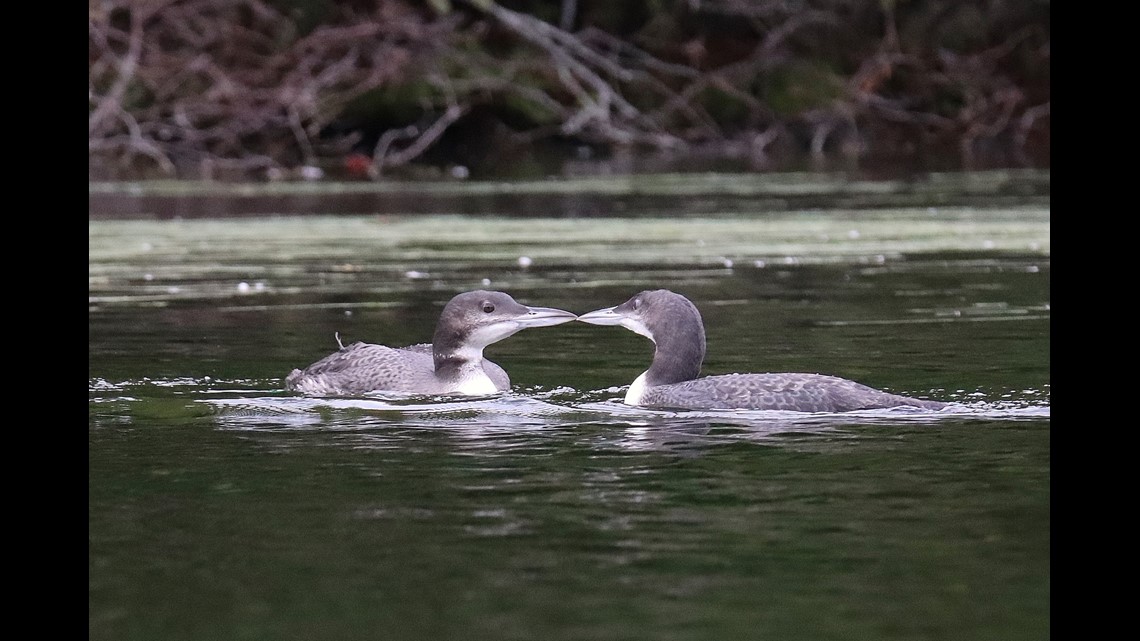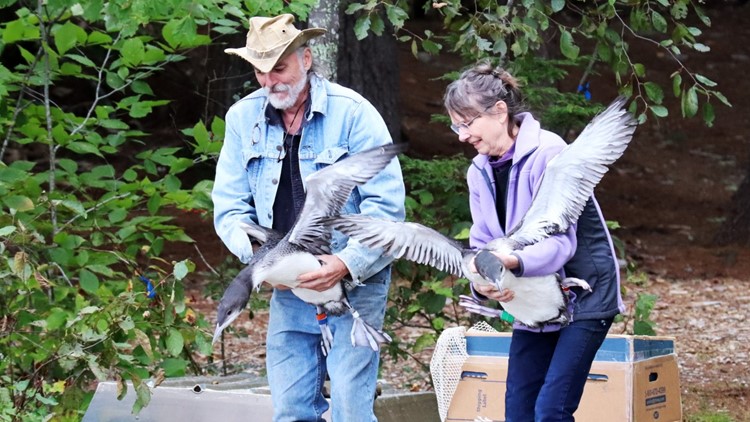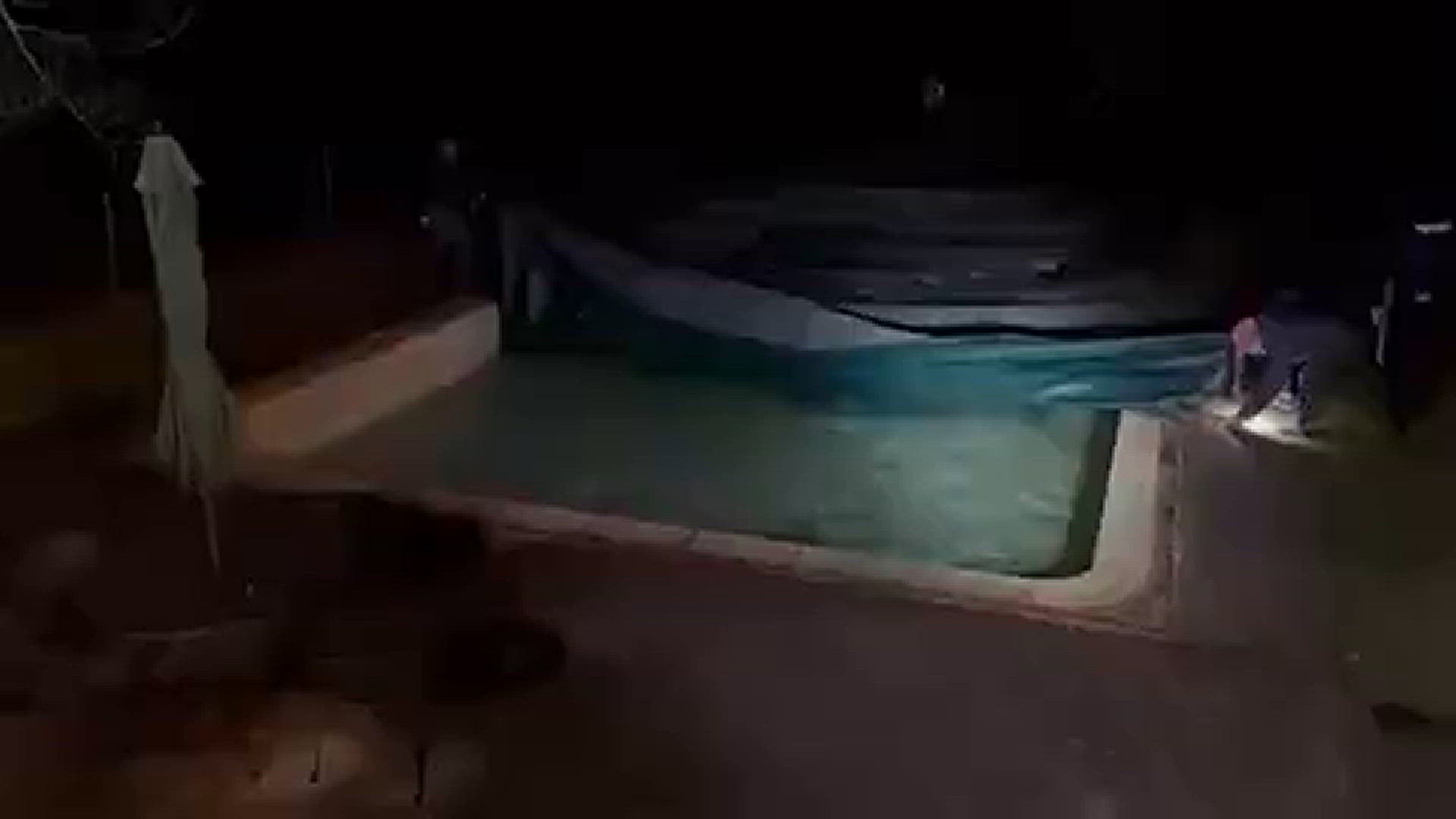GRAY, Maine — "Rogue intruder" loons encroaching on their parents' breeding area this summer left two common loon chicks in deep trouble.
Luckily they were rescued by the Little Sebago Loon Monitoring & Conservation Program and taken to Avian Haven Wild Bird Rehabilitation Center.
Hatched nearly three weeks apart and to different parents, they recovered at the center. By early September, the chicks were spending all their time in an outdoor loon pond, "skillfully catching live minnows and making their first practice runs across the surface of the pond," Avian Haven wrote in a Facebook post.
On Saturday morning, it was time to return the chicks to Little Sebago Lake. Little Sebago Loon Watch and the "Loon Rangers" gathered at the shores of a cove behind Grape Island. Avian Haven co-founders Marc Payne and Diane Winn lifted the loons from boxes and carried them to the water. Photographer Bruce Small documented the release in these photos.

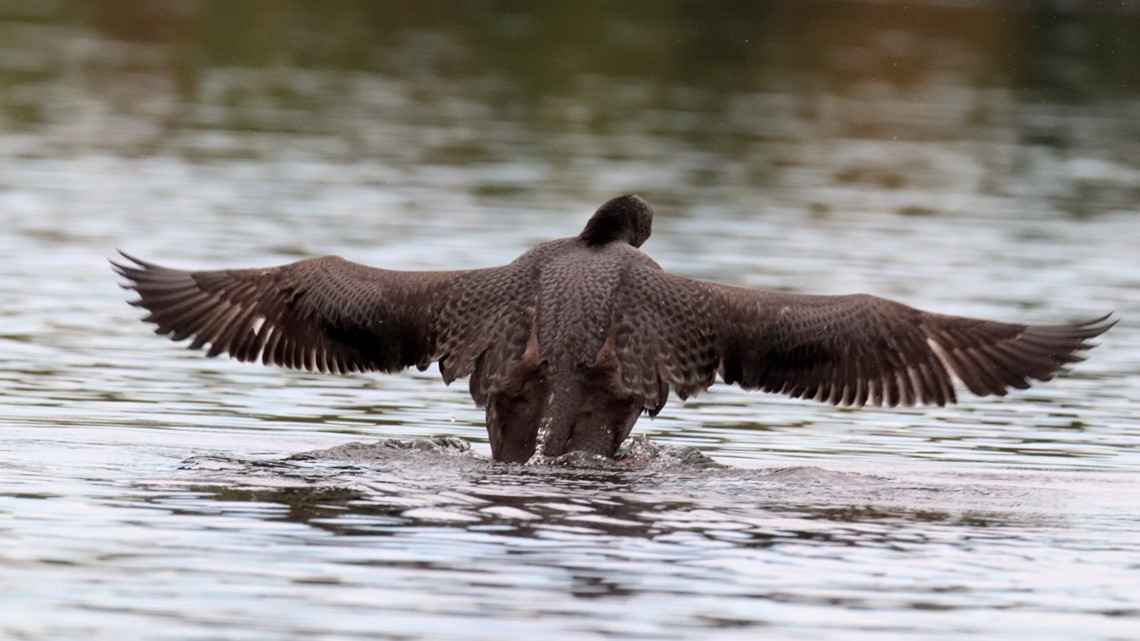

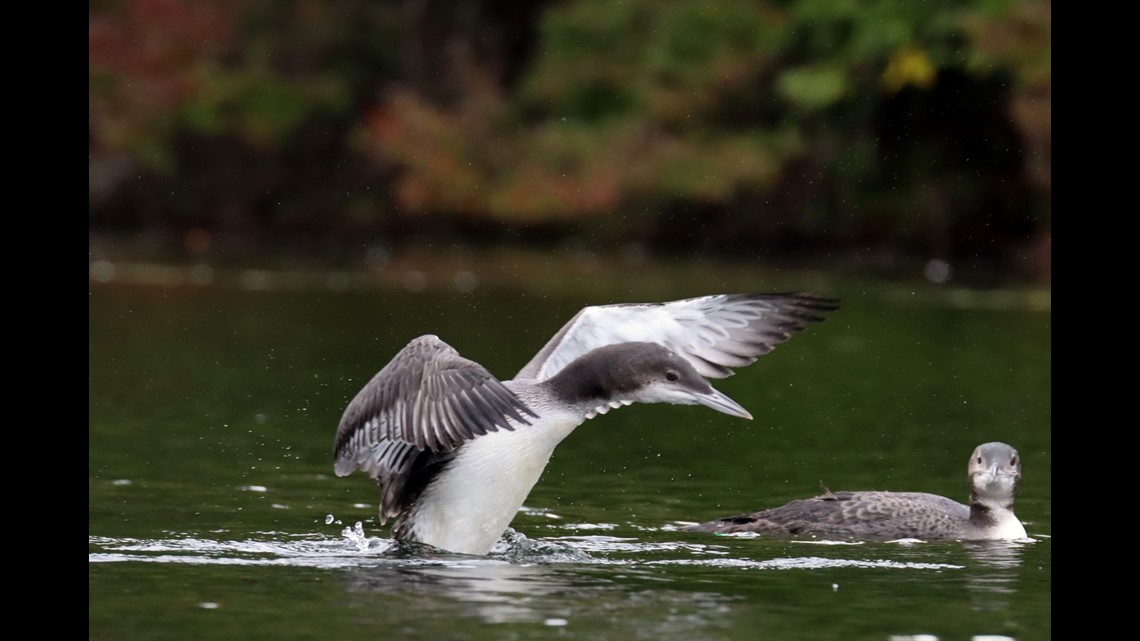
"Once placed in the water, they immediately started acting like loons in the wild: ducking their heads, stretching their wings, and diving, looking for fish," Bruce Small wrote in a Facebook post.

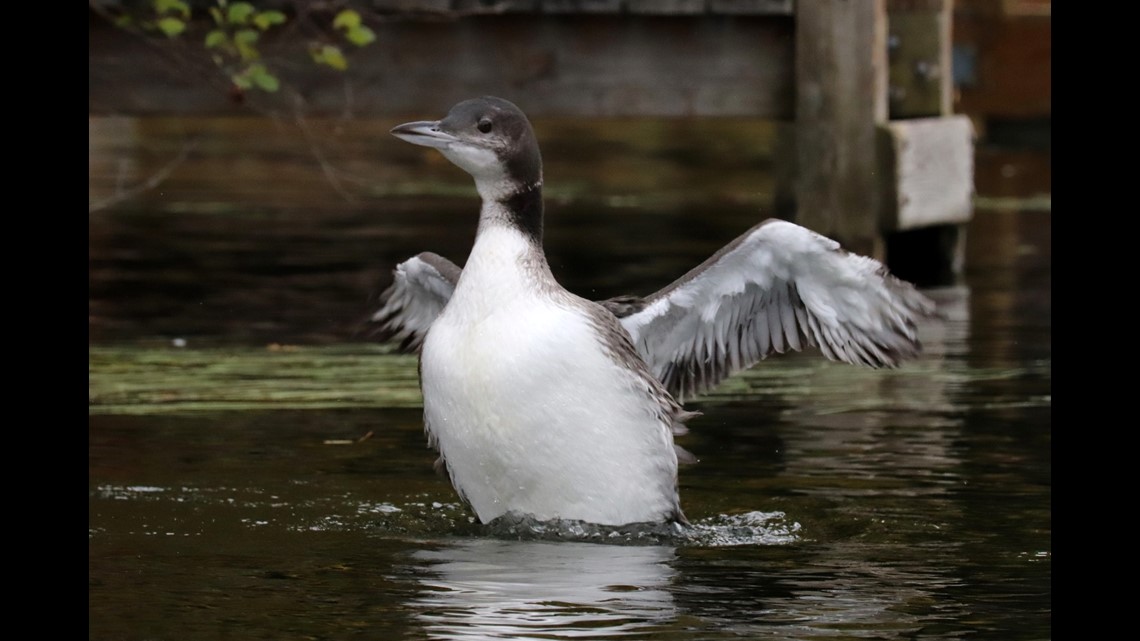
"They immediately dipped their bills and enjoyed an array of minnows and aquatic life," Sharon Young of Little Sebago Loon Monitoring & Conservation said. "One did a bit of wing rowing, and both [did] some penguin dancing and much diving."

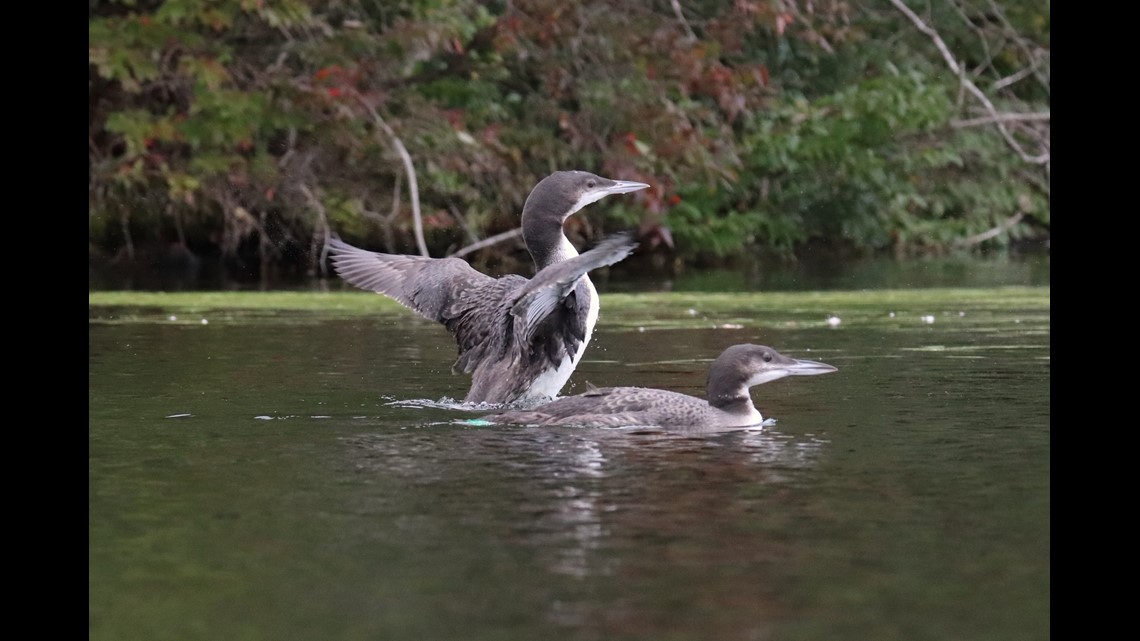

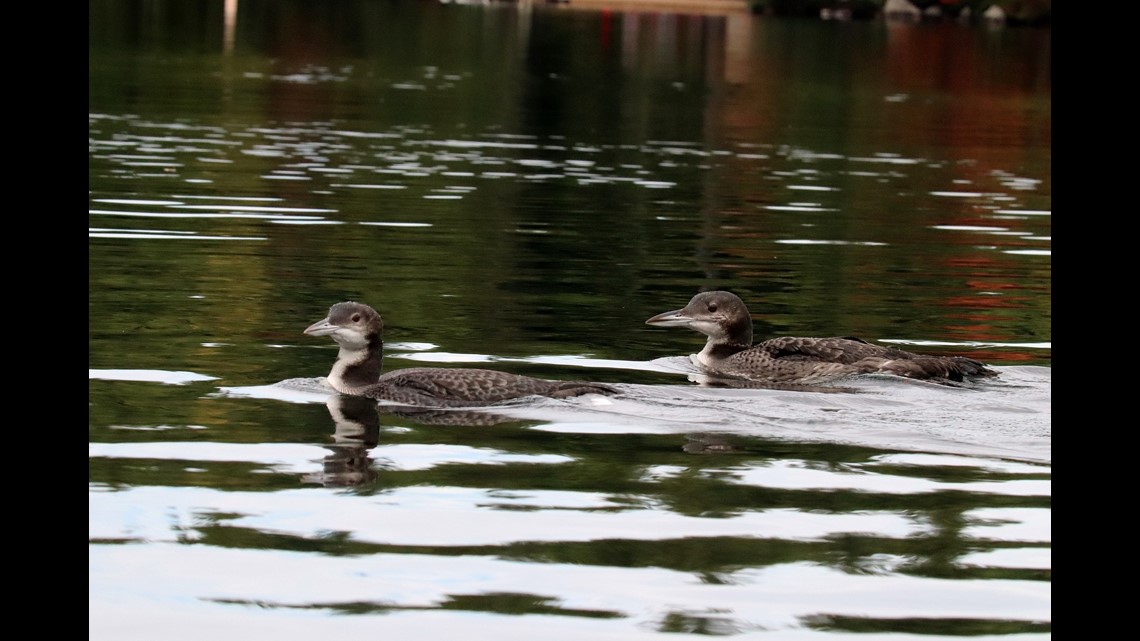
Not long after they were released, a "raft" of eight loons -- seven adults and one chick -- was spotted. The chicks' cheerleaders held their breath, Young said. They had waited until fall to release the chicks because the aggressive mating behavior of adult loons has usually ended, leaving them less likely to be aggressive. But no one was quite sure.
Five of the loons weren't particularly interested, Young said. One adult and the chick wandered over and "did a little bit of watchful circling" before returning to the group.

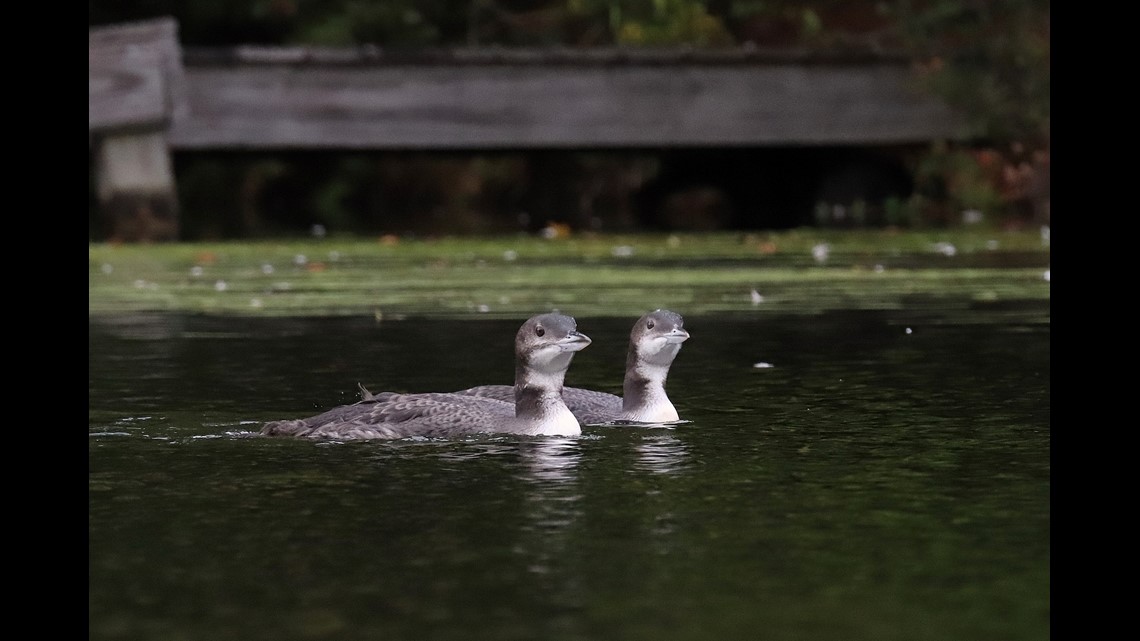

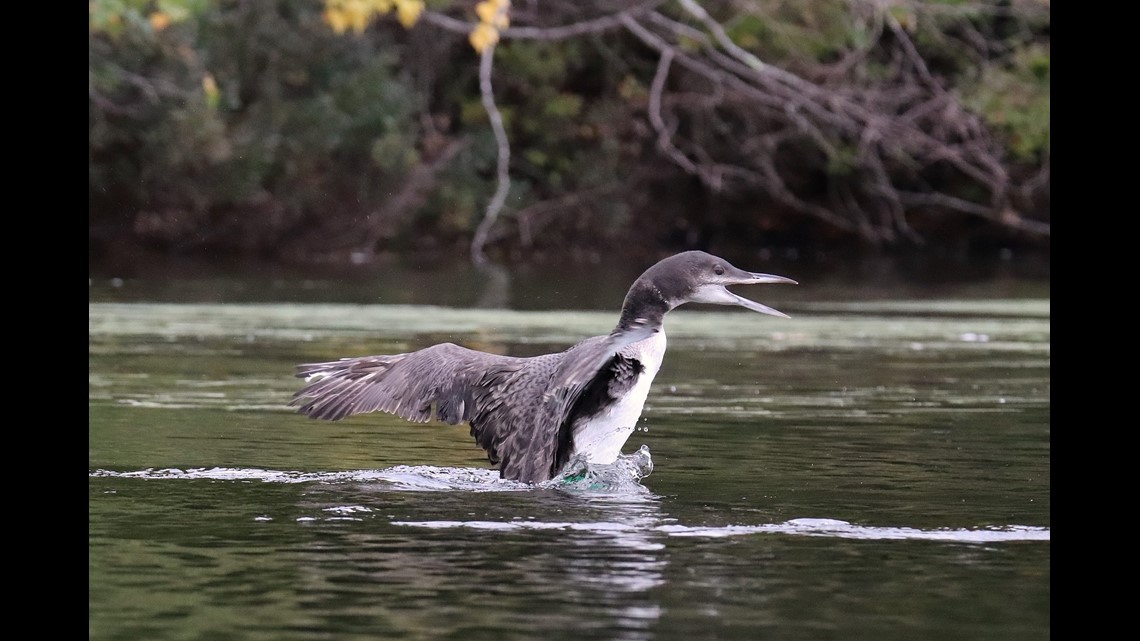
While the two chicks didn't stay together long, they were still doing fine Monday evening. Since Saturday morning, volunteers have checked twice a day on the chicks.
"I just got back from doing that with another Loon Ranger, and we were able to find both today," Young said.
Already this summer, the group has lost three adult loons and two chicks, Young said, "So to have these two rescue chicks come home was quite something."

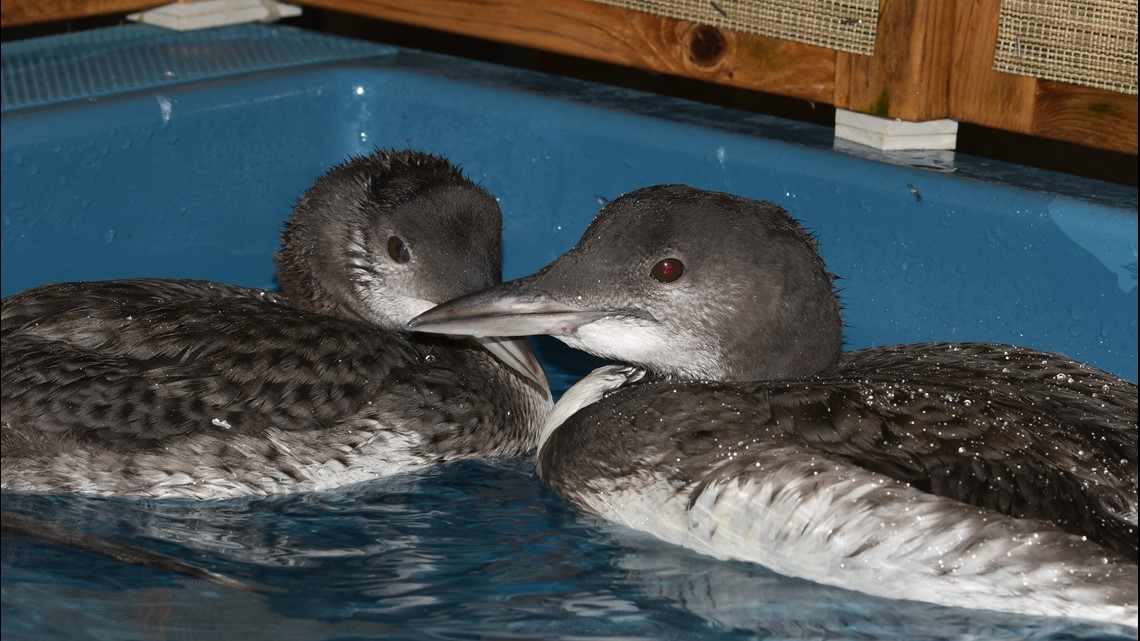
Leigh Hallett, executive director of Avian Haven, said Monday that the "intensive, daily care" required with loons is greater than with other birds.
"We love having them, don't get me wrong," she said. "It's a very high degree of interaction to maintain their living quarters, prepare and administer feeding, take them outdoors periodically, even when they're little, to be sure they're exposed to the right kinds of conditions."

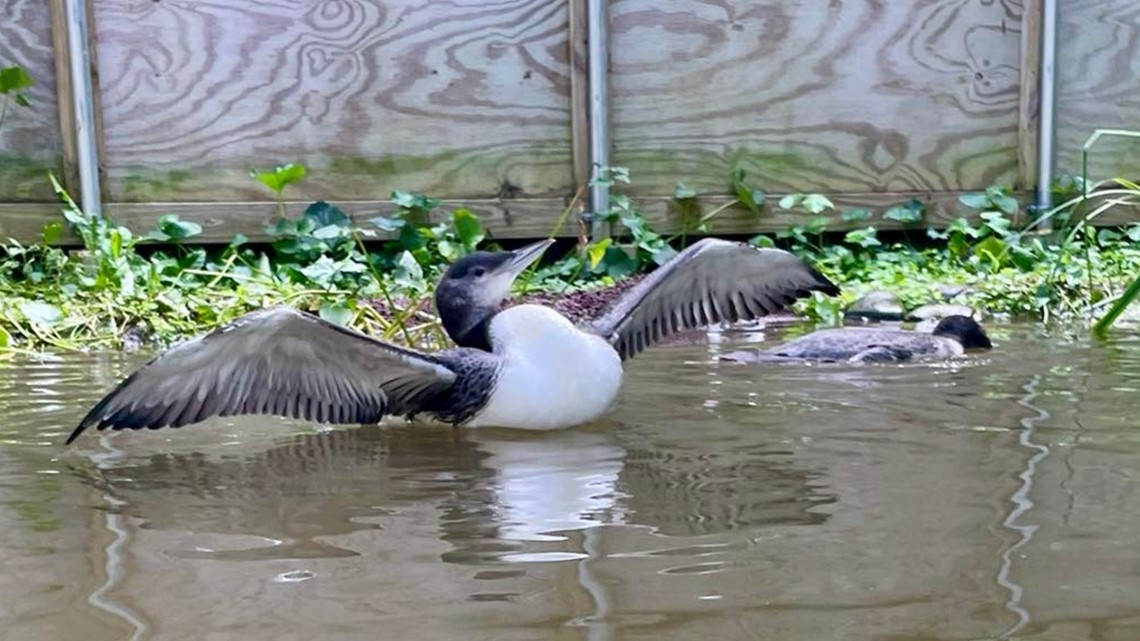
The care provided by the nonprofit organization is funded entirely by donations. To donate, click here.

